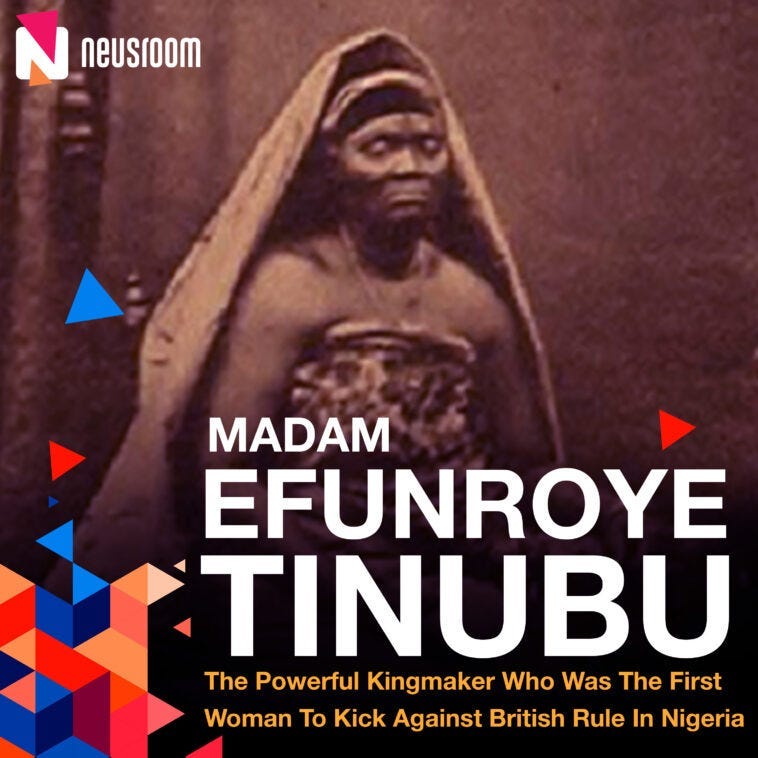Madam Efunroye Tinubu
Efunporoye Osuntinubu Olumosa (commonly abbreviated to Efunroye Tinubu) was a brilliant and ambitious Nigerian business magnate who exerted…
Efunporoye Osuntinubu Olumosa (commonly abbreviated to Efunroye Tinubu) was a brilliant and ambitious Nigerian business magnate who exerted immense economic and political power in Abeokuta and Lagos. She was born in the Yoruba town of Abeokuta in Western Nigeria in 1805. She married a man and had two boys with him before he died. As a newly widowed and single mother, she began selling tree bark and leaves for a living. Her grandmother, Osunsola, who traded in tree bark, roots, herbs, and leaves, had taught her essential market skills. Her mother, Nijeede, who was a food vendor, also taught her business skills.
Tinubu wedded Adele, an exiled oba (king) of Lagos, in 1833. She began to amass economic and political influence as a result of her marriage. Tinubu used her husband’s contacts to build a profitable commercial empire in Badagry, where she traded salt and tobacco from Europeans for slaves from Abeokuta.
Tinubu then moved to Lagos after Adele returned to his throne in 1835. Unfortunately, Adele died just two years later in 1837, making Tinubu a widow for the second time. She helped install Adele’s son, Oluwole, as the new king and married his military advisor, Yesefu Bada. She also continued to expand her trade network by monopolizing slaves and palm oil and offering firearms obtained from the Europeans, which increased her wealth during the Yoruba Wars of the 1840s and 1850s.
Following Oluwole’s untimely death, Tinubu planned for her brother-in-law, Akintoye, to seize the throne in Lagos. He compensated her by giving her ownership of significant establishments in downtown Lagos. To match her new position, she made more investments in Lagos’ commercial sector and erected a massive personal mansion. Tinubu was also said to be the owner of 360 personal slaves. By 1845, when European nations rejected slavery and moved to West African commercial crops, she had enlarged her empire by dominating the primary new commodities of commerce: palm oil, coconut oil, and cotton.
Tinubu has now formed overseas trade ties and negotiated agreements with European and Brazilian political and military figures.
She was the main link in Lagos between European commerce and merchants from the Nigerian hinterland.
Tinubu lost control in Lagos when she faced up against British Consul Benjamin Campbell, who railed against her economic hegemony and hidden slave trade with Europeans and Brazilians. Tinubu, for his part, publicly chastised Campbell for infringing on royal authority and sovereignty in Lagos. She plotted to depose Consul Campbell, but before she could carry it out, Campbell confronted her with British gunboats in May 1856 and demanded her exile from Lagos. Tinubu was compelled to return to Abeokuta due to greater British military forces. Despite this, she remained a significant merchant in Nigeria’s interior until she died in 1887.
Tinubu, the royal wife, political counselor, patriot, and economic powerhouse, is still regarded as one of the most influential individuals in 19th-century Nigeria. Tinubu Square in Lagos is still one of the city’s major commercial areas, an enduring testament to her accomplishment.



